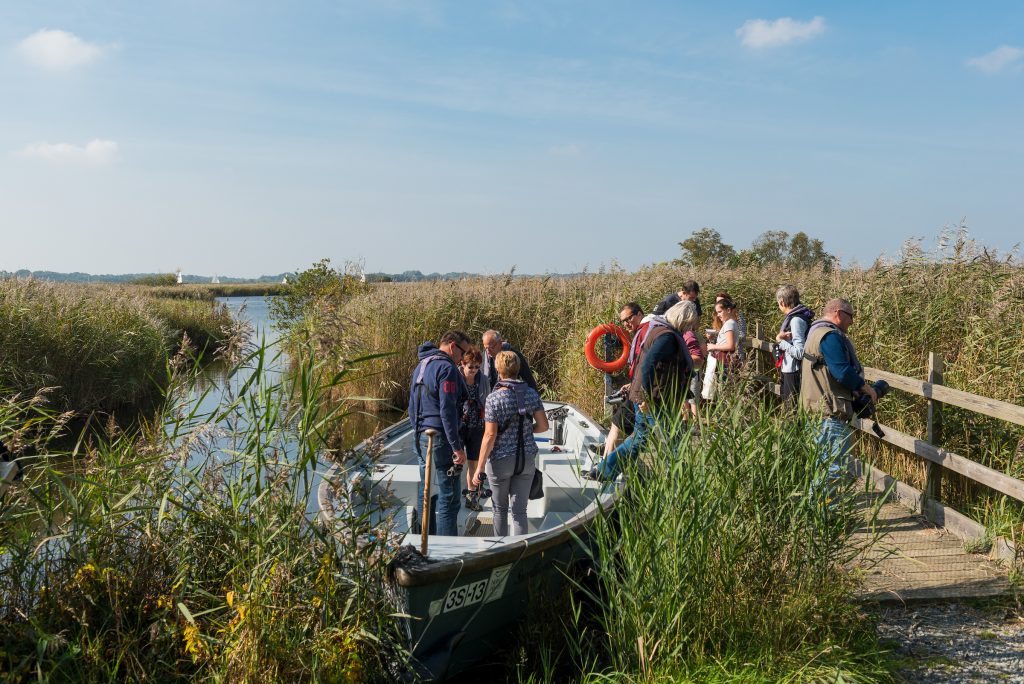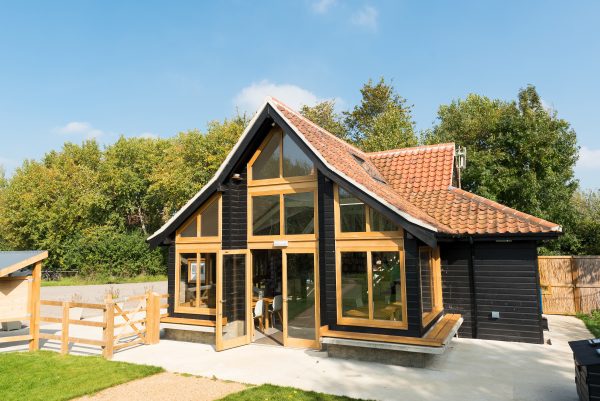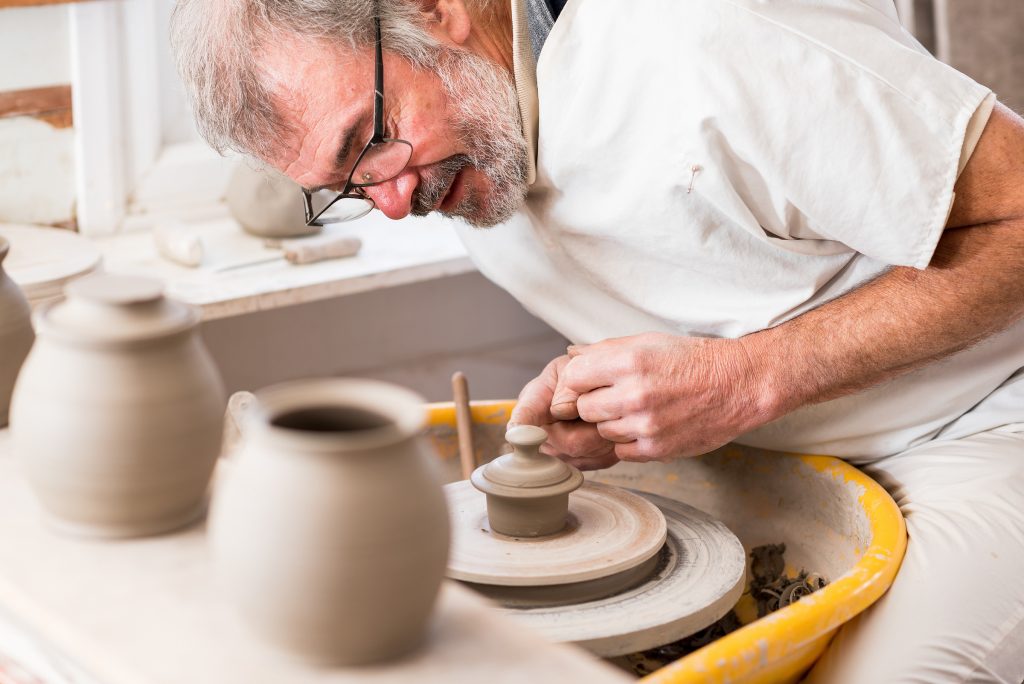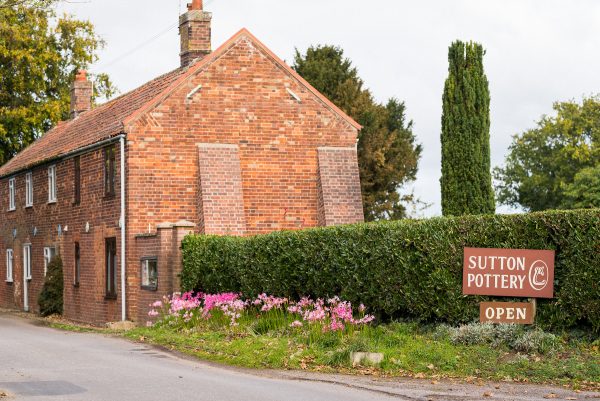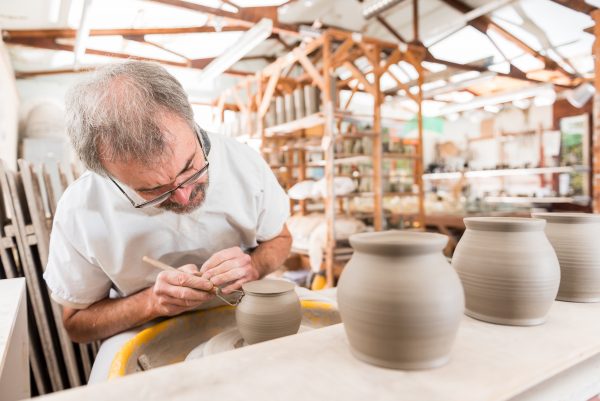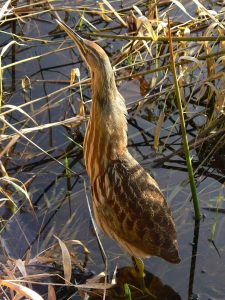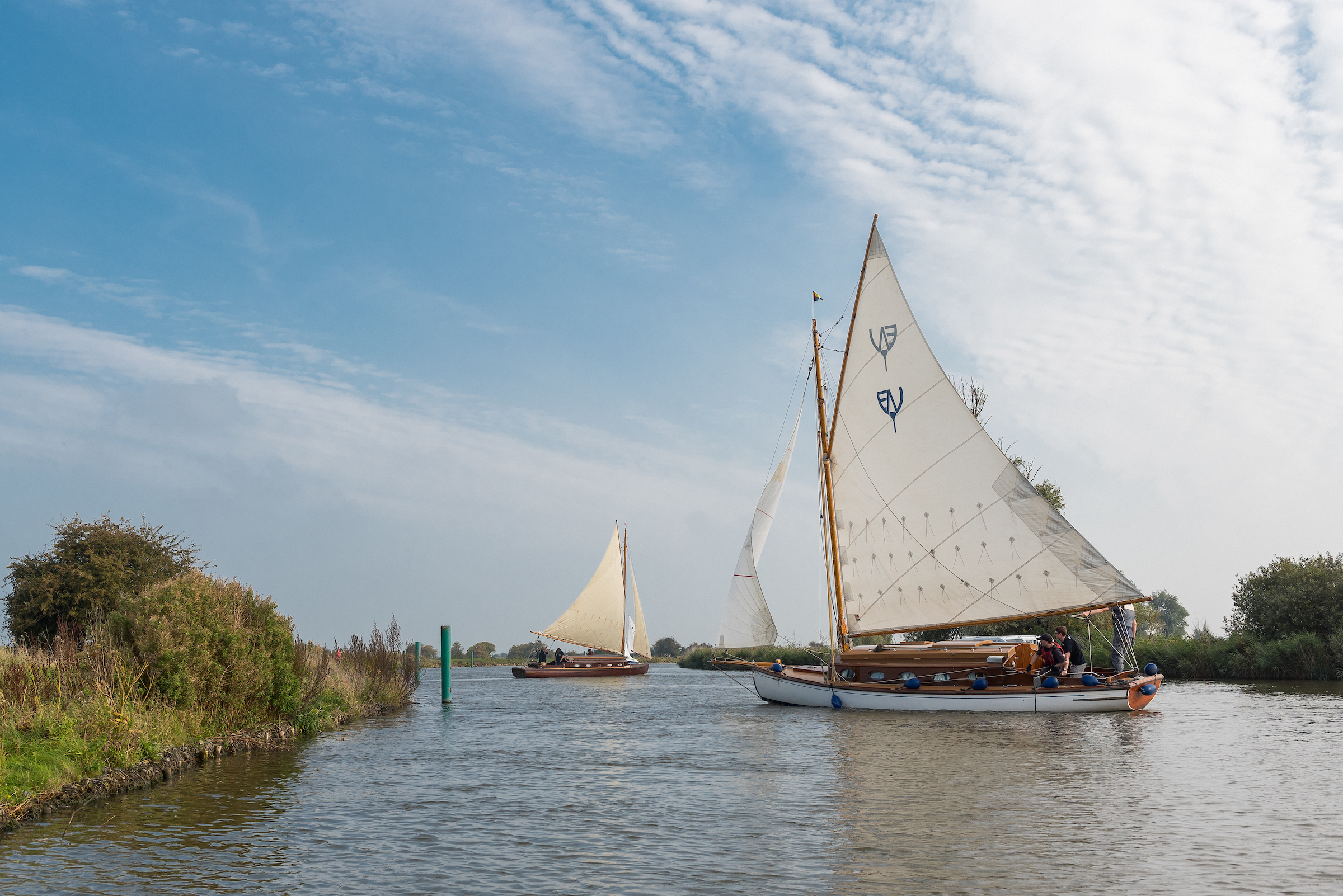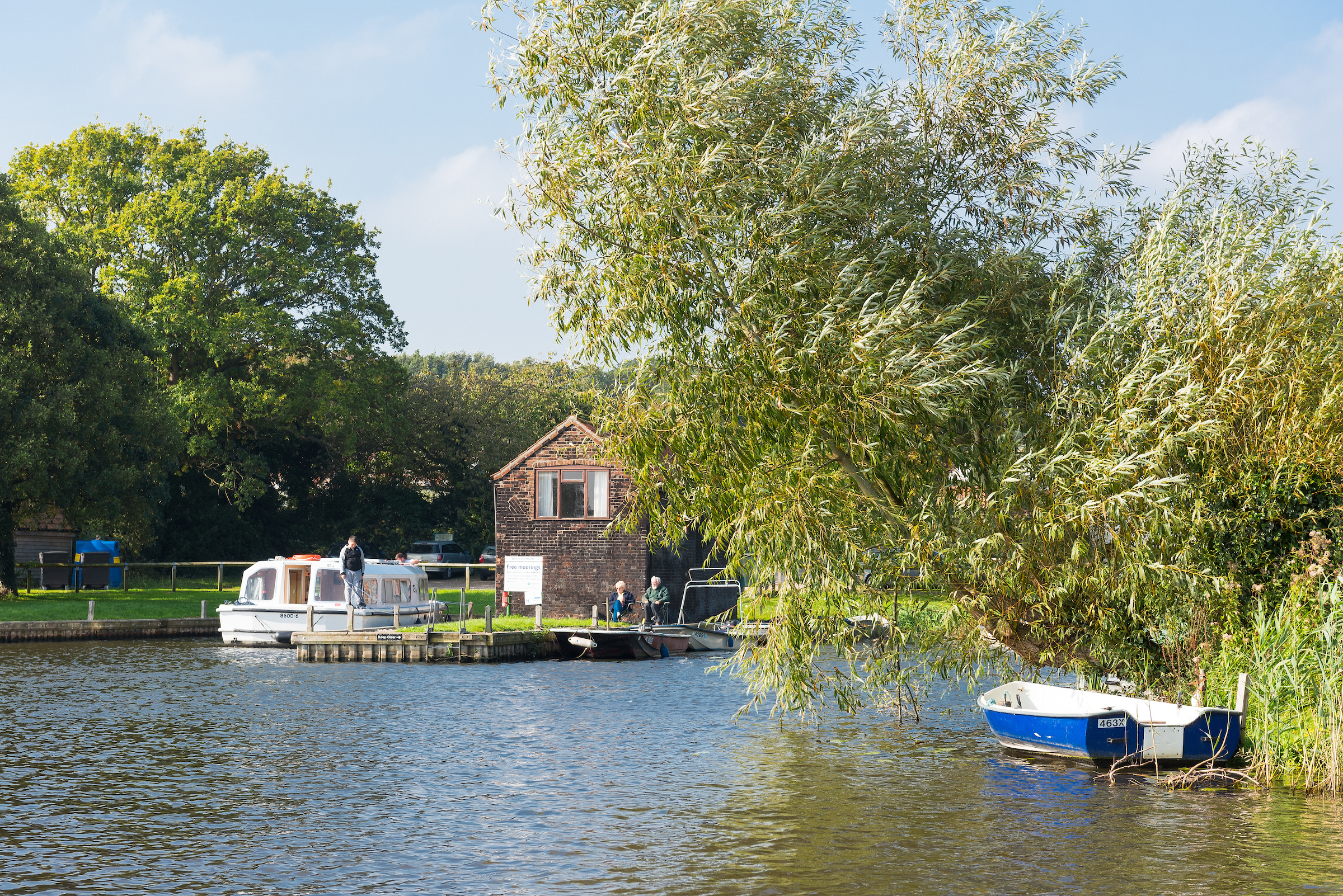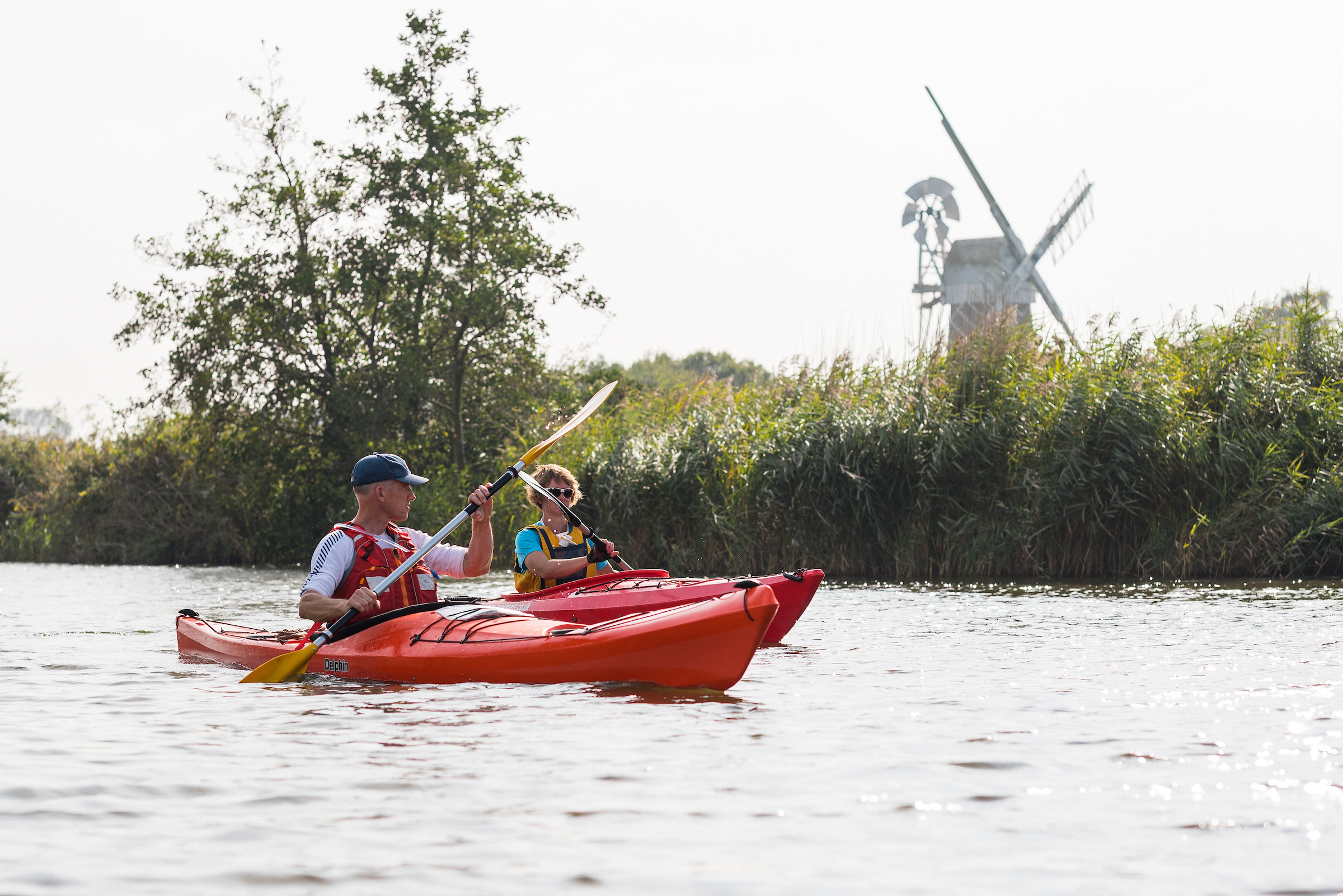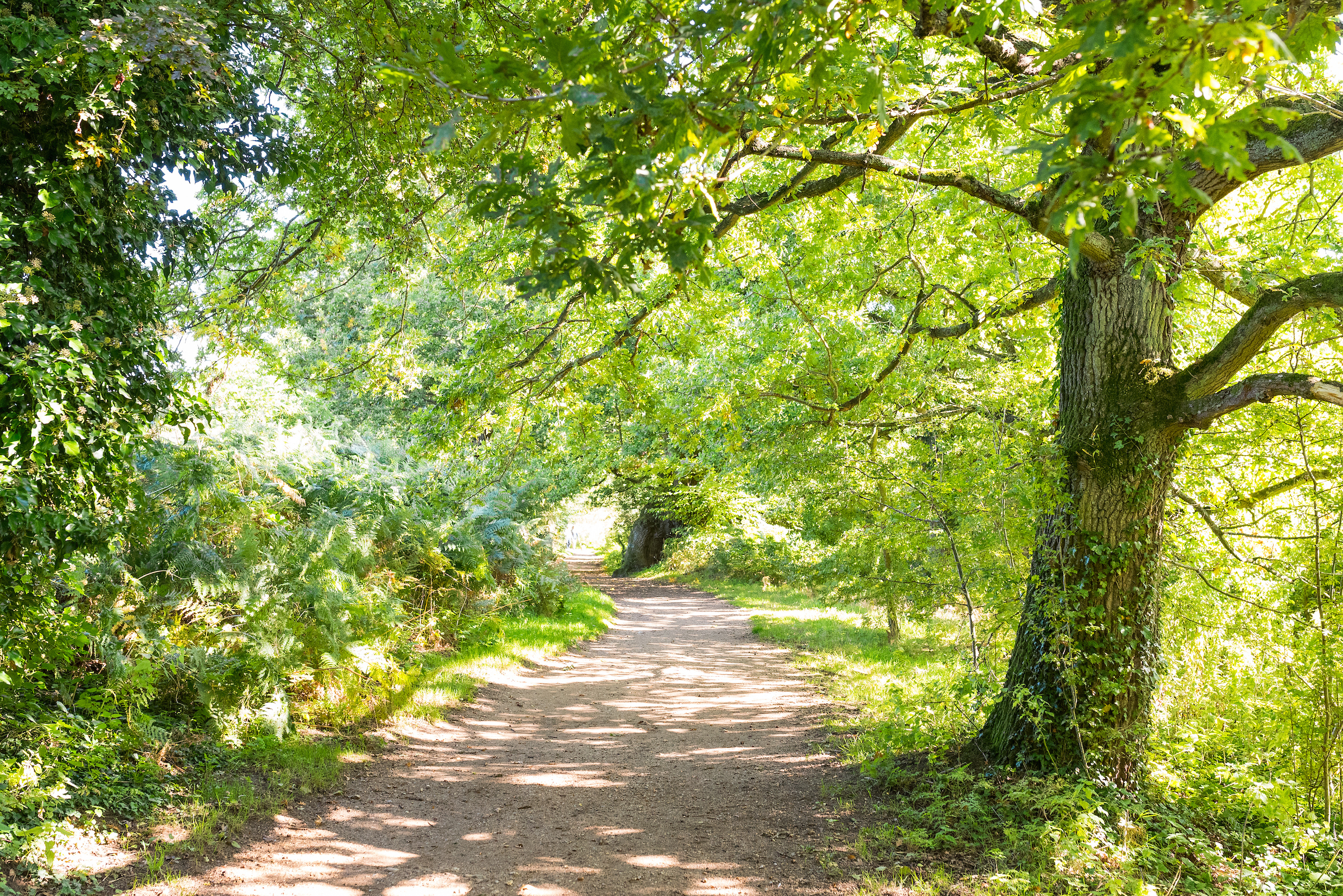GUIDED BOAT TRIP & WILDLIFE WATCHING
Traditional industries played a large part in the history and development of the Norfolk Broads, and this day is designed to help you discover something of the impact these activities have had on the landscape, people and wildlife over the centuries.
Our suggestions will take you to Hickling Broad, the largest peat working in the Norfolk Broads, owned and managed by the Norfolk Wildlife Trust, for a not-to-be-missed guided tour of the Broad, its history and wildlife; lunch at a traditional pub; followed by an afternoon stroll (around 4 miles) along the Weavers Way, now a long distance footpath, but in ages past a route for weavers and their products stretching from Cromer to the markets and port at Great Yarmouth, to a modern expression of this craft tradition at a local pottery.
Our recommended itinerary is as follows:
• Drive to the Norfolk Wildlife Trust visitor centre in Hickling, located on Stubb Lane and signposted from Hickling village
• Take plenty of time to explore the reserve using the marked trails and boardwalks extending along the edge of Hickling Broad, the largest expanse of water in the Broads National Park
• A wide variety of insect and bird life inhabit the reserve, including marsh harriers, the rare swallowtail butterfly and even rarer bittern. If you visit in late spring, listen out for its booming cry carrying over the reeds
• Not to be missed however, and by far the best way to explore the reserve, is the guided boat trip run by the Trust. Leaving several times during the day, and lasting for around 2 hours, this trip is in our opinion the best guided boat trip available in the Norfolk Broads. However, you will need to book in advance by telephoning the Trust on 01692 598276
• The trip is undertaken on a traditional electrically powered reed lighter, and provides a varied and comprehensive exploration of the Broad, its history, wildlife, hidden areas and conservation – just wonderful!
• After your trip, stop for lunch at the Greyhound Inn located in the village centre (turn right at the end of Stubb Lane). The pub offers a wide selection of good food and real ales, and if the weather permits don’t miss their award-winning pub garden
• After lunch, leaving your car in the village, why not walk off those pounds with a gentle stroll along the Weavers Way, using the quiet lanes around the village.
• Turn right outside the pub, and take the first left, and you will pass Sutton Mill, the tallest windmill in England, although it is now closed to visitors.
• Once past the Mill, turn left at the crossroads and this lane will bring you to Sutton Pottery, a small but busy studio, run by Malcolm Flatman. Malcolm specialises in beautiful, functional home ware, together with some decorative pieces and is happy to welcome visitors Monday to Friday. Should you wish to place an order, he can even send your pots by post!
• On leaving the pottery, turn left, following this lane back to Hickling village and your car
THE BITTERN
If you visit in late spring, listen out for its booming cry carrying over the reedsMORE FROM OUR COLLECTION
Broads in a Day – Cycle Ride
CYCLE RIDE & PICNIC This is a magnificent [...]
Barton and Alderfen Broads
WALK Exploring the Broads National Park on foot can [...]
Martham to Horsey – Canoe
CANOE TRIP This is one of our favourite days out, [...]











